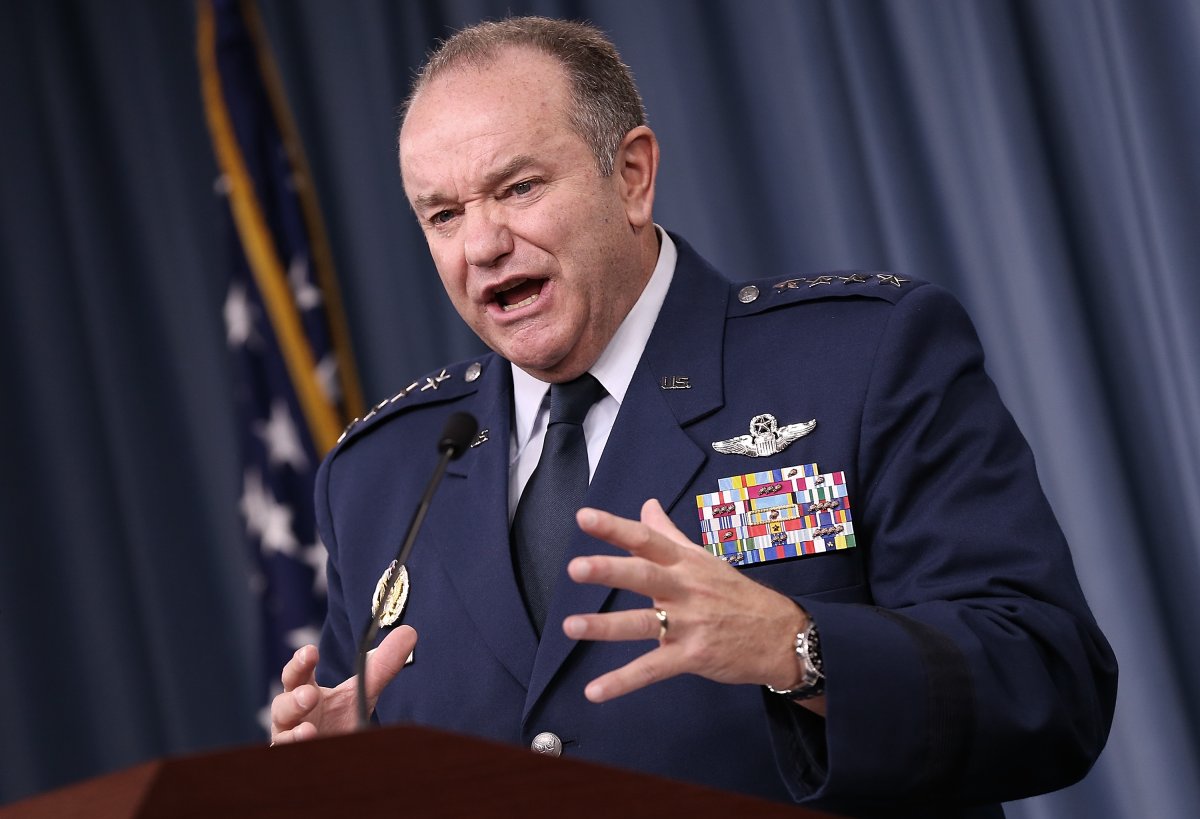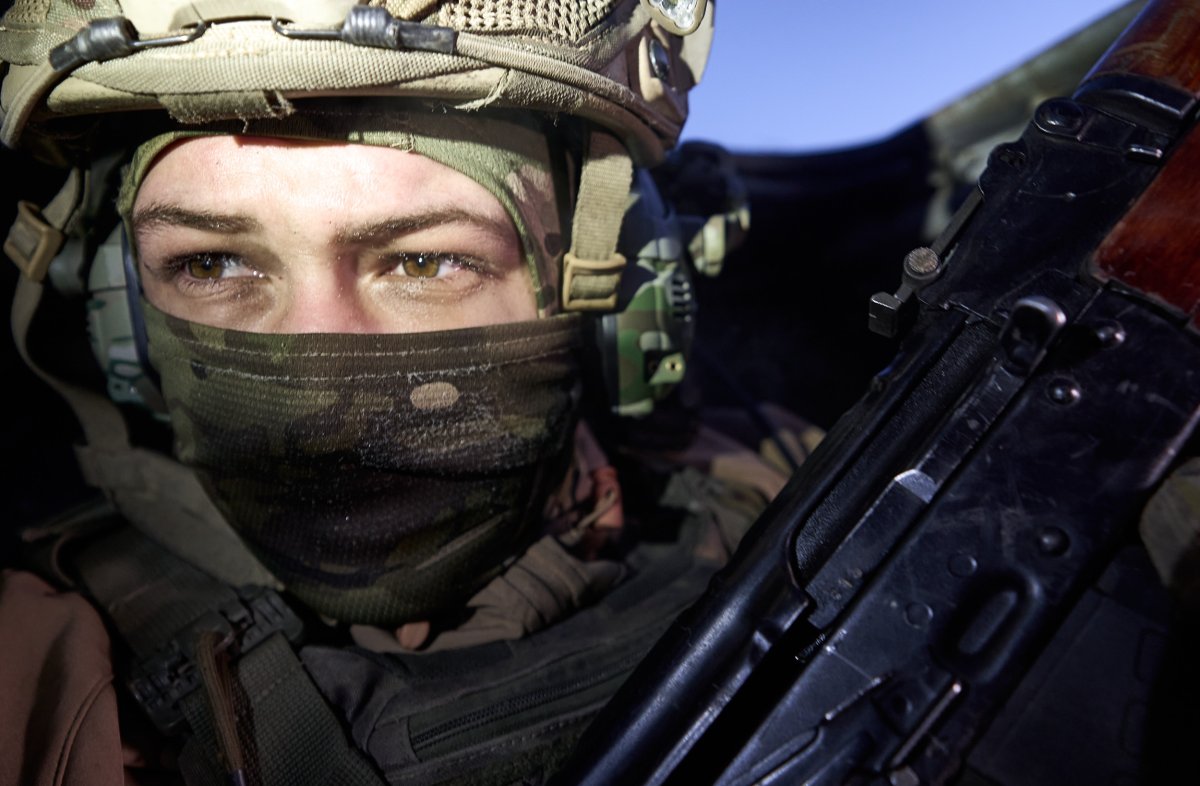Three scenarios for the war started by Vladimir Putin in Ukraine are envisaged by Philip Breedlove, the former Supreme Allied Commander Europe—and two of them involve a Russian victory.
“If we don’t do anything different than we’re doing now, eventually, Ukraine will lose because Russia has more people and depth than Ukraine does,” he told Newsweek.
“If the West abandons Ukraine, it will fight valiantly but tens of thousands of more Ukrainians will die and eventually Russia will subjugate all of Ukraine which will once again be a Russian vassal.”
But one path offers hope for Ukraine, according to Breedlove, who as NATO commander between 2013 and 2016 witnessed the consequences of Putin’s annexation of Crimea in 2014 that preceded his full-scale invasion.
Getty Images
“If the West chooses to give Ukraine what they need to win, Ukraine will win this war,” the four-star general said. “This war is going to end exactly how Western policymakers want and desire it to end.”
That need for more western weapons informed Volodymr Zelensky’s exasperated plea this week that the fight against Putin is not just Kyiv’s. “He’s not going to stop until we all finish him off together,” the Ukrainian president said on Thursday.
The warning comes as U.S. lawmakers return to Washington after a wing of the Republican Party thwarted before Christmas a security package that included $61.4 billion for Ukraine.
During that congressional recess, Ukraine suffered a Russian bombardment over five days over the New Year in which more than 500 missiles and drones were fired throughout the country, destroying a maternity hospital, schools, and apartments and killing 45 people.
Gaining traction on the GOP primary campaign trail, spurred by former President Donald Trump and his allies, are calls to end U.S. aid, which since the start of the war, totals over $79 billion—the world’s highest.
Tom Malinowski, former National Security Council (NSC) senior director and an ex-assistant secretary of state for democracy, human rights and labor in the Obama administration, said that the hold-up by the GOP wing to help Kyiv had made a Putin victory “somewhat more likely.”

Win McNamee/Getty Images
“The question for the Republican leadership in the House is, do they want to get blamed for Russia winning the war? They need to answer that question now,” he told Newsweek.
“Most things in Congress can be kicked down the road. If you lose one day, you’ll live to fight another day but Ukraine can’t live to fight another day,” said the former Democratic congressman for New Jersey.
As the war enters its third year on February 24, there are growing calls from some U.S. lawmakers for Zelensky to enter negotiations and cede territory. However, the Institute for the Study of War’s assessment in December described dire consequences of freezing the conflict or, even worse, a victorious Putin.
America’s Fight
A defeated Ukraine would push a combat-experienced Russian army considerably larger than the pre-invasion forces next to NATO’s border, from the Black Sea to the Arctic Ocean. Advanced air defense systems that only American stealth aircraft can defy would be needed, leaving gaps in U.S. deterrence against China.
The ISW, a think tank based in Washington, DC, also said that a frozen conflict would be worse than continuing to help Ukraine because it would give Putin time to prepare for a renewed war effort and confrontation with NATO.
“Ukraine’s fight is America’s fight,” said Malinowski. “We don’t want to see Putin win. Whatever Ukraine and the United States and our allies decide to do to bring this war to a favorable conclusion in the coming year depends on the passage of this aid because if it’s not, then Putin gains confidence and momentum and leverage.”
The widely touted Ukrainian counteroffensive that started in June 2023 with the aim of taking back Russian-occupied territory did not yield the results expected by Kyiv or its allies which had armed the fight against Putin’s aggression.
“Maneuver warfare starts with air superiority,” Breedlove said. “We have not given Ukraine what it needs to establish air superiority.”
He also noted that while Ukraine has been provided with some short-range weapons, U.S. ATACMS (Army Tactical Missile System) were older variants with cluster munition warheads less capable than the modern versions.
“We are not giving them what they need to win. Rather, we’re giving them enough to remain on the battlefield,” said Breedlove. “Western leaders have taken counsel of their fears” and as such, are “unable to think through what a defeated Putin means.”

Kostiantyn Liberov/Getty Images
Ukraine’s Mistakes
Ukraine’s counteroffensive was hindered by the slow delivery of armored maneuver vehicles, Gustav Gressel, senior policy fellow at the European Council on Foreign Relations (ECFR), told Newsweek.
U.S. Bradley fighting vehicles and German-made Leopard tanks would have been more effective if they had been delivered when the integrity of Ukraine’s mechanized forces was better, he said. Also, the fight for Bakhmut, in Donetsk oblast, came at too high a cost. “Ukraine has made its mistakes,” he said. “Ukraine was stuck in Bakhmut for much too long, losing a lot of experienced guys.
“They conducted insufficient training for their maneuver warfare, for their assault brigades. They put their faith in newly formed brigades. We know from the Second World War that newly formed formations need their time to work themselves in. Often reinforcing existing experience brigades or formations is the wiser choice.”
It was not just the lack of air cover that hurt Ukraine’s counteroffensive. “The West underestimated how quickly Russian electronic warfare would adopt to GPS controlled precision ammunition and render it less effective,” Gressel said.
“I’m deeply worried for this year because it will be a very tough year for Ukraine. We haven’t increased our ammunition production for even simple artillery and mortar bombs to the point we can grant Ukraine fire superiority,” said Gressel, although he hoped 2025 would be better if weapons supply chains and training of Ukrainian troops improved.
Cold War Strategy
Ukrainian gains in 2022 included recapturing Kharkiv and Kherson, driving back Russian forces from Kyiv and delivering blows to Putin’s Black Sea Fleet, which continue to this day. But earlier gains inspired Zelensky and the Biden administration to set “unrealistic goals” with its 2023 counteroffensive, Viktor Kovalenko, a defense analyst and former Ukrainian soldier, told Newsweek.
“I think it is damn time for the Western partners of Ukraine to switch to the proven strategy of the Cold War,” he said. This means deterring and containing Russia “wherever it needs and whatever it takes in Ukraine and along the NATO borders.”
Ukraine can point to some major positives. It has nearly regained complete control of the northwestern Black Sea, pushing the Russian navy east and southeast. On land, Ukrainian forces have pushed forward enough to begin using short-range artillery fire into the land bridge to Crimea, which it is striking regularly.
But the next stage in the war which will shape European security for the next few decades is not just about U.S. help. Putin’s ally in the European Union, Hungarian Prime Minister Viktor Orban, last month vetoed a €50 billion ($55 billion) package from Brussels, without which Zelensky said it would be hard for Kyiv to survive as the war enters its third year on February 24.
“Western support of Ukraine should be refocused on building fortifications and multi-layered defense capabilities in Ukraine, on training their recruits, and on boosting their arms production so any further Russian attempts to strike or grab more of their land will be met with fire and fury,” Kovalenko said.
“Vladimir Putin keeps looking where he can have an upper hand. But a transition of the Ukraine strategy to a defensive one, combined with deterrence, won’t really give him the advantage because the Ukrainians won’t surrender anyway.”
Uncommon Knowledge
Newsweek is committed to challenging conventional wisdom and finding connections in the search for common ground.
Newsweek is committed to challenging conventional wisdom and finding connections in the search for common ground.